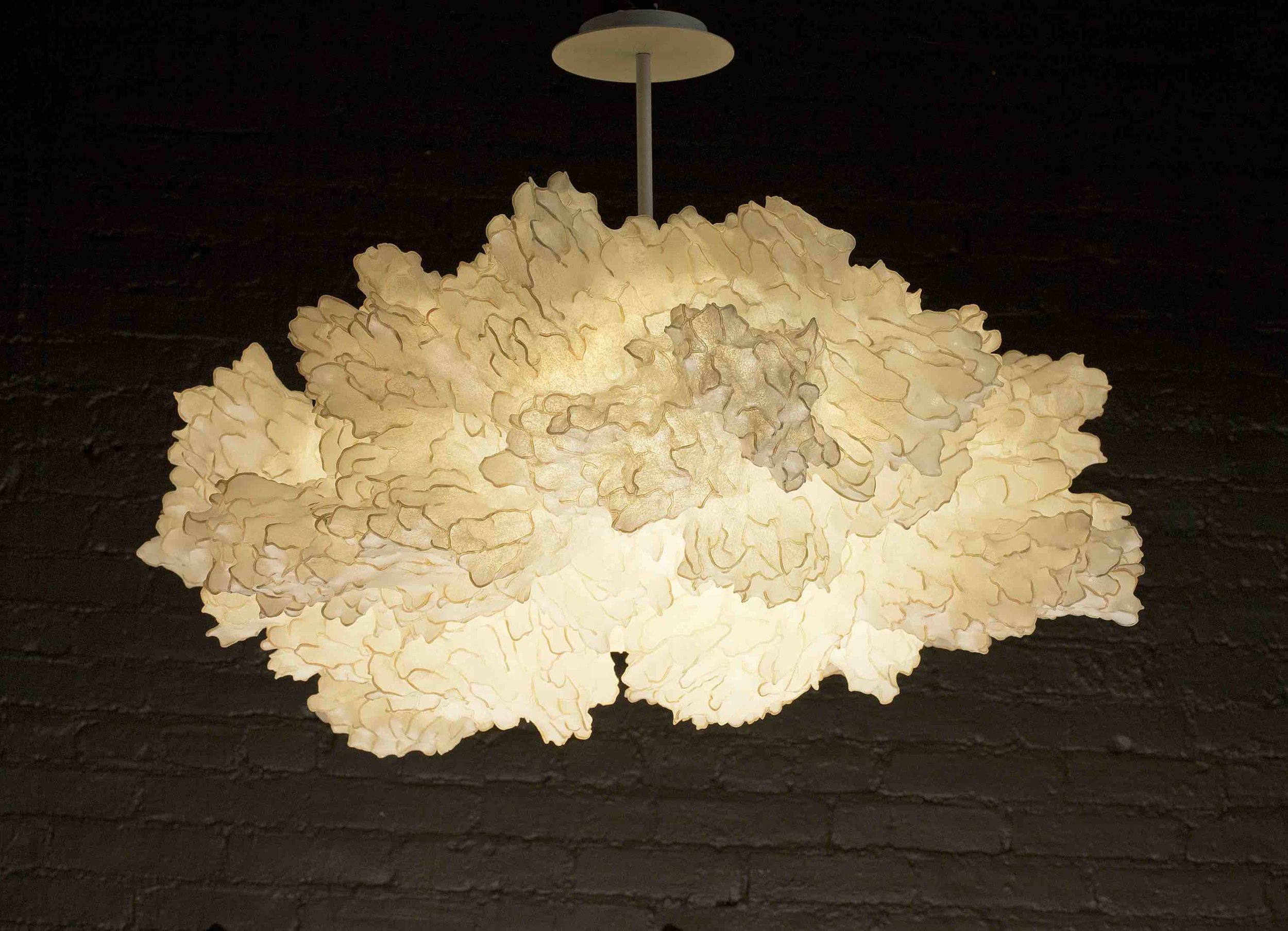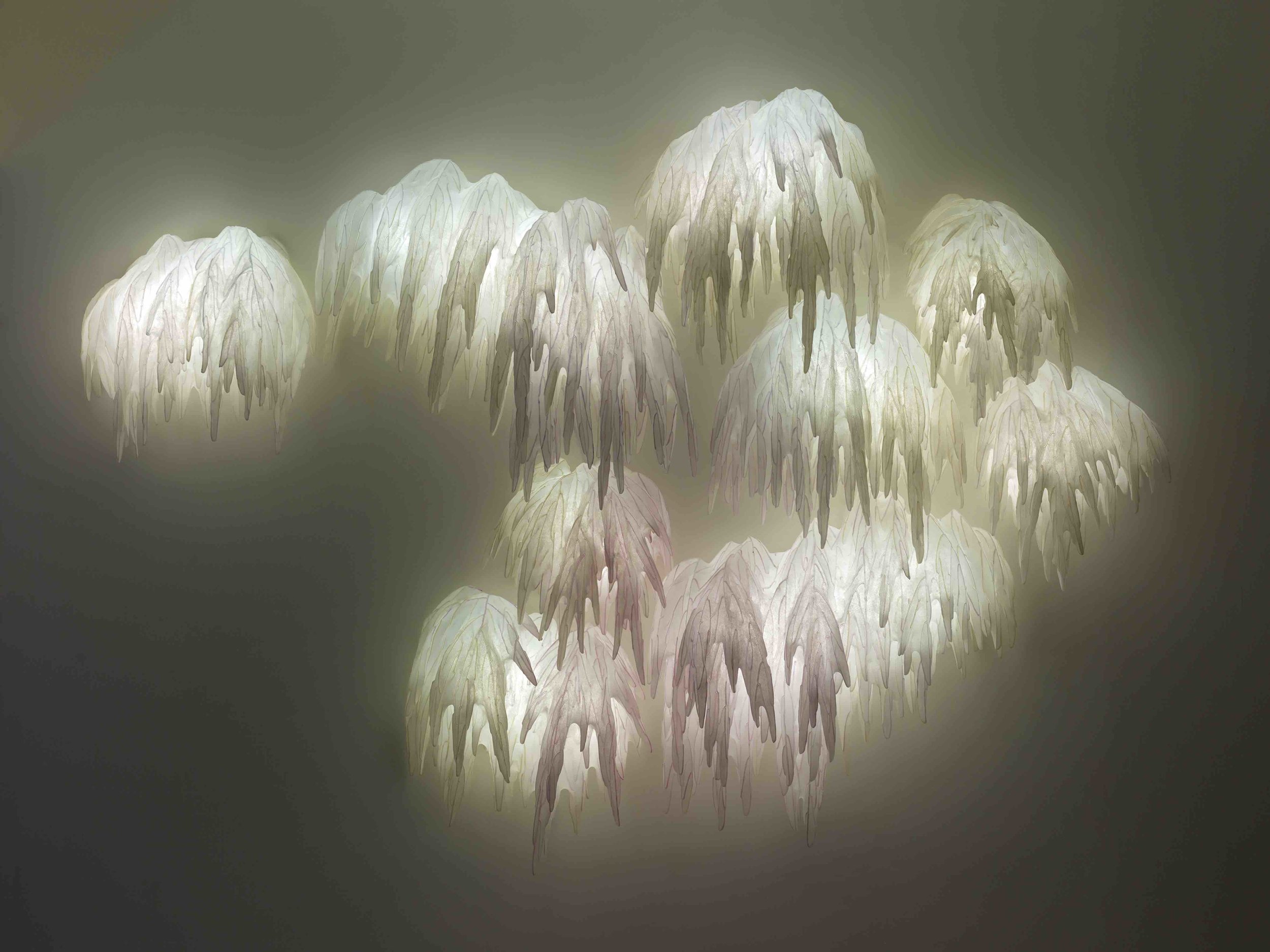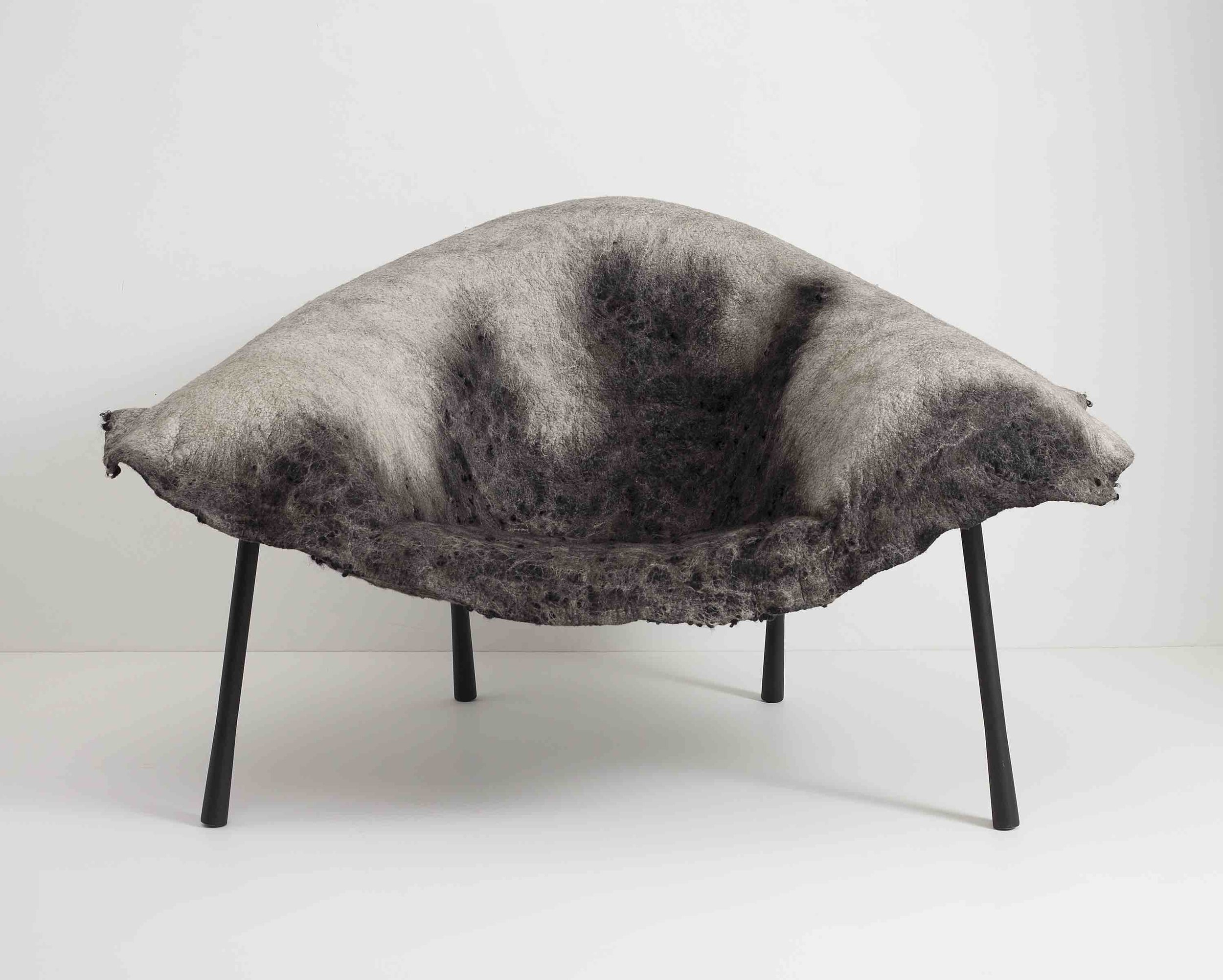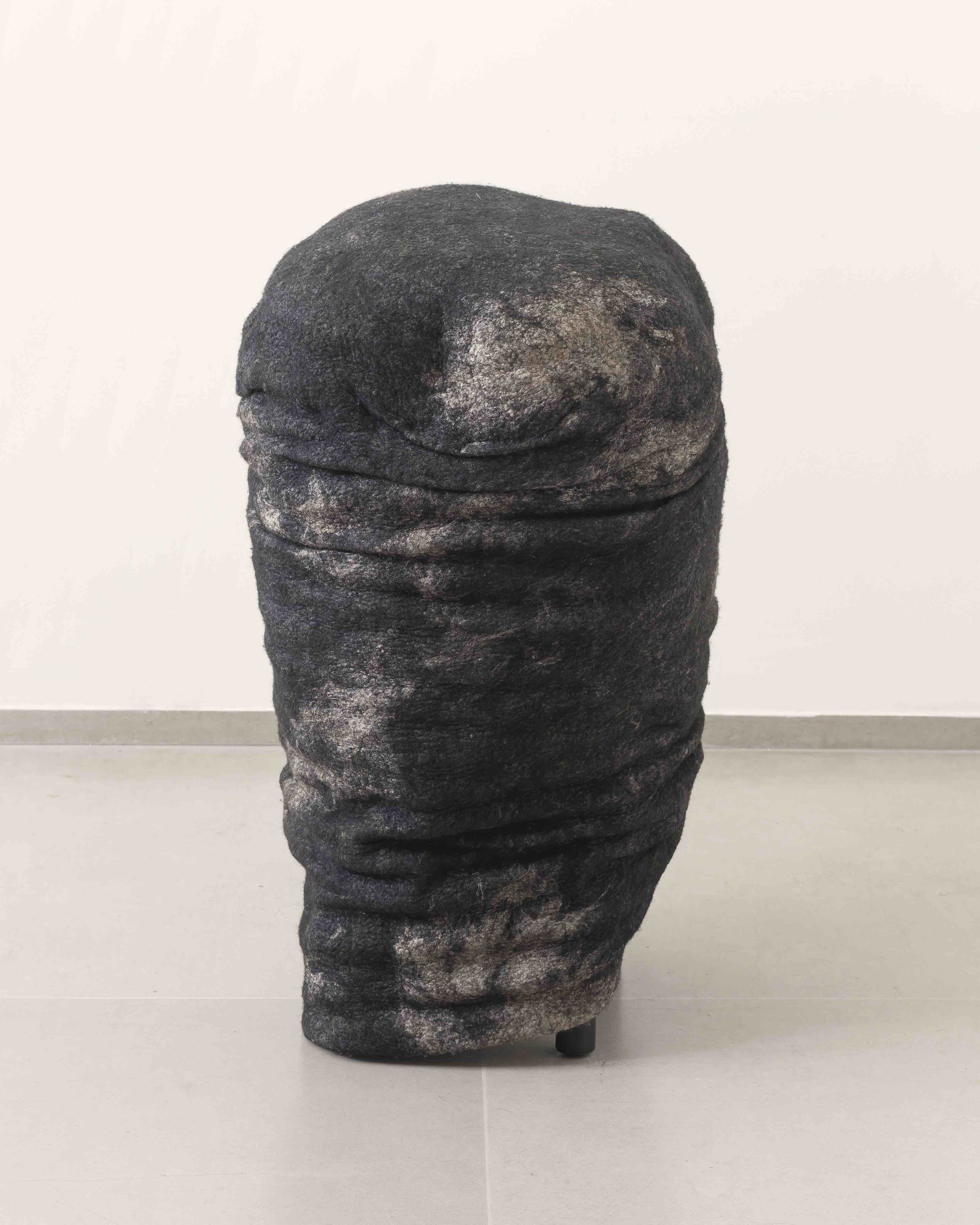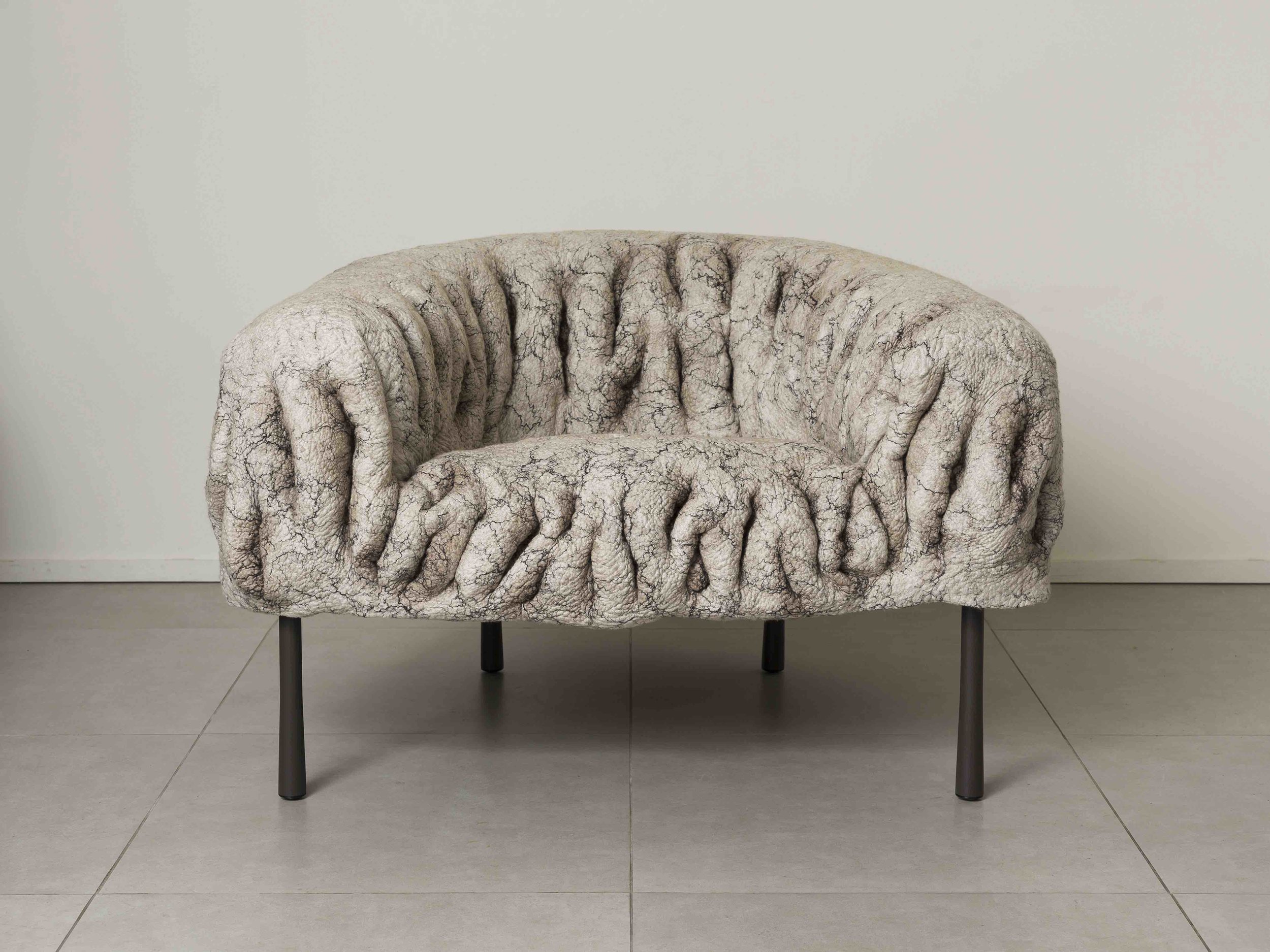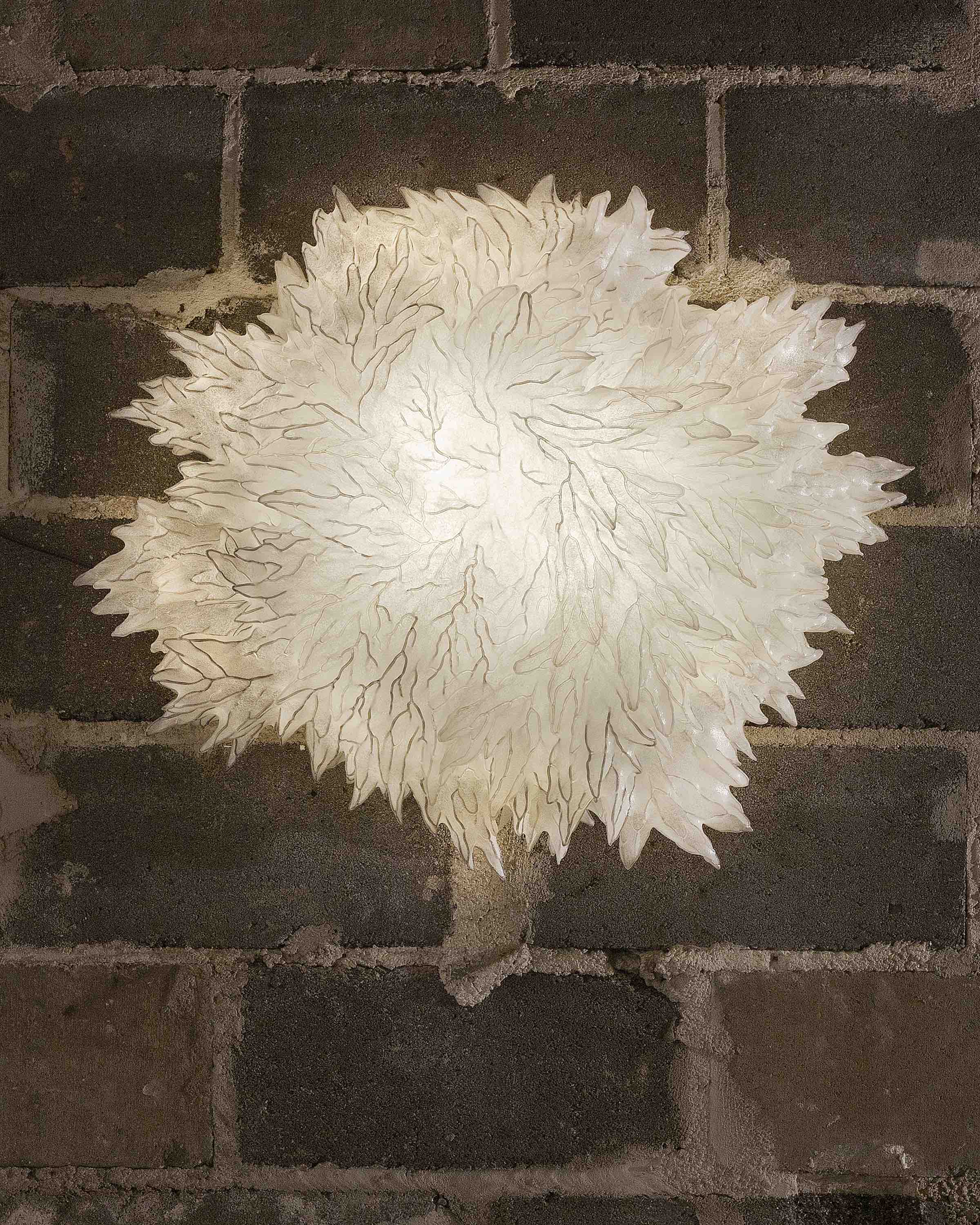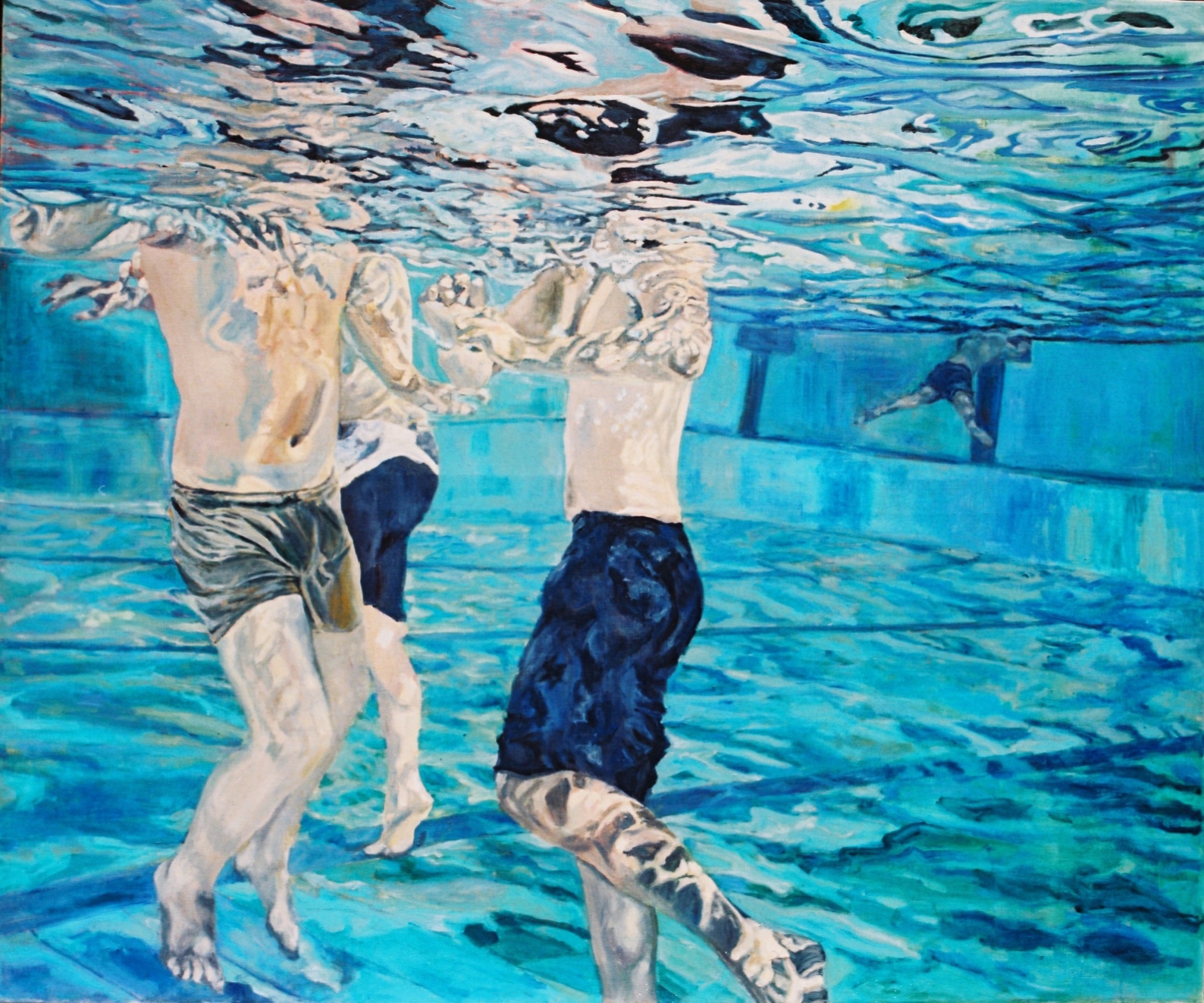Ayala Serfaty’s Entudia. Courtesy of Maison Gerard, Robert Levin
The border between fine arts and applied arts is not always distinct. Designer/artist Ayala Serfaty’s work lives on that frontier. She has long been known for her organically inspired shapes in light known as Soma, works that have been exhibited at museums and galleries from Tel Aviv to New York to Milan. These delicate pieces, made of glass and silk, recall the strange wonders of undersea life—graceful jellyfish, proliferating corals—all lit from within, ethereal, seeming almost to breathe. Serfaty’s light works have become so popular that they are now produced in a steady stream, with her oversight, by a team of fabricators at her Tel Aviv workshop, and sold in high-end design stores around the world.
“I really like the parameters of design.”
One body of work (and body is the operative word) called Rapa is driven by the same organic impetus but yields a very different outcome: massive pieces of furniture. Instead of gossamer strands of glass, with silk and light, the material here is thick, chunky felt: soft as moss, earthbound, comforting as an animal’s warm hide.
Serfatystudied art at the Bezalel Academy in Jerusalem and started out as a fine artist, but moved into design: “I really like the parameters of design. A chair—okay, it can be anything, but it does have to be comfortable to sit on. With a sculpture, there is no such requirement.” After years of producing and selling the Soma work, what led her to shift gears so radically into the felt furniture? The curse of success: Serfaty found herself directing a fabrication business, instead of making things with her hands. “To run something is different from creating art. I had to figure how to make the split.” And furthermore, she was very ready to try out a new sensibility: “With the Soma work, I can’t let anybody touch it. With the felt pieces—you can put your feet on them, you can do whatever you want. You can jump on them! They are so solid, nothing will happen to them in two hundred years.”
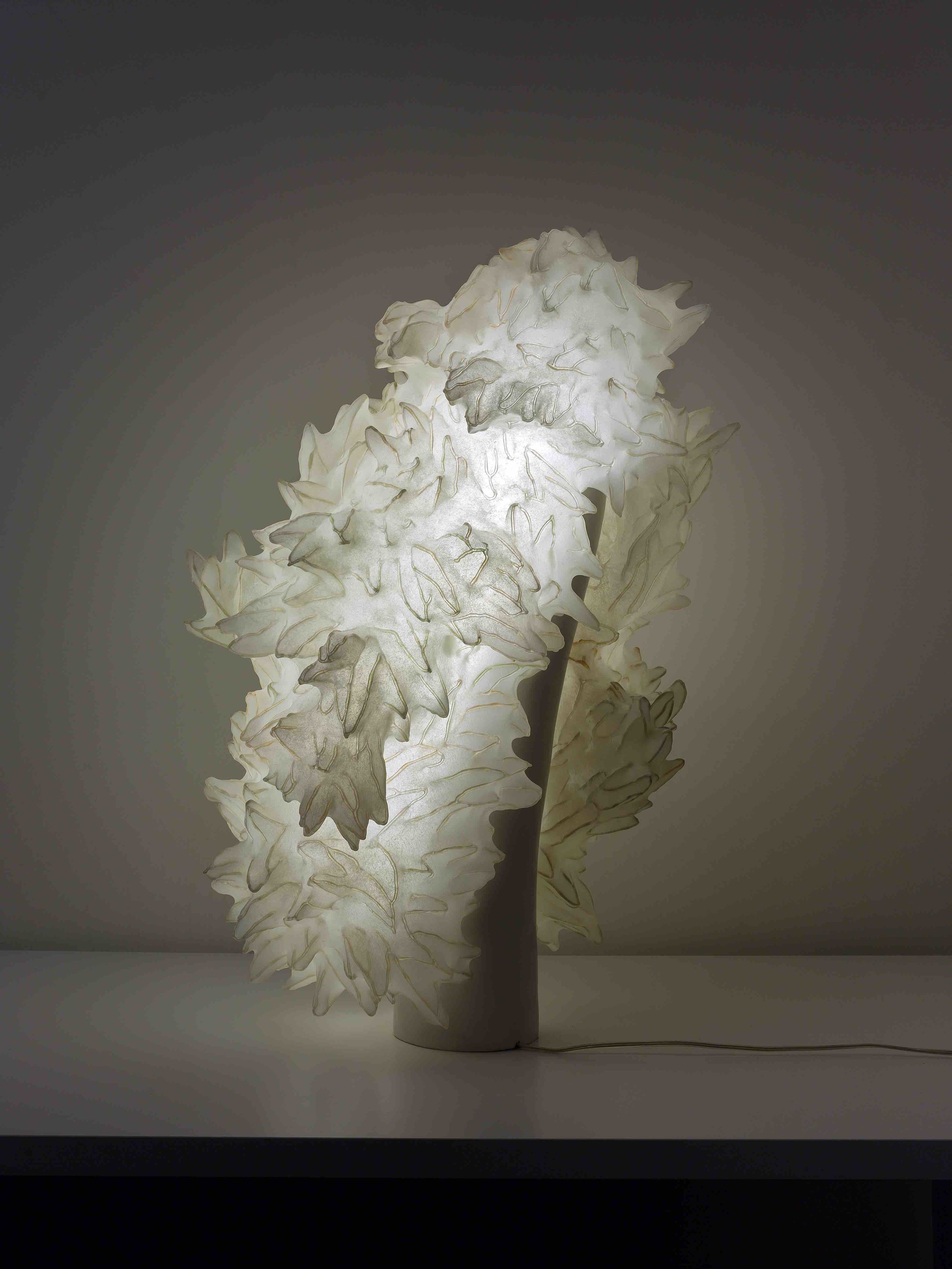
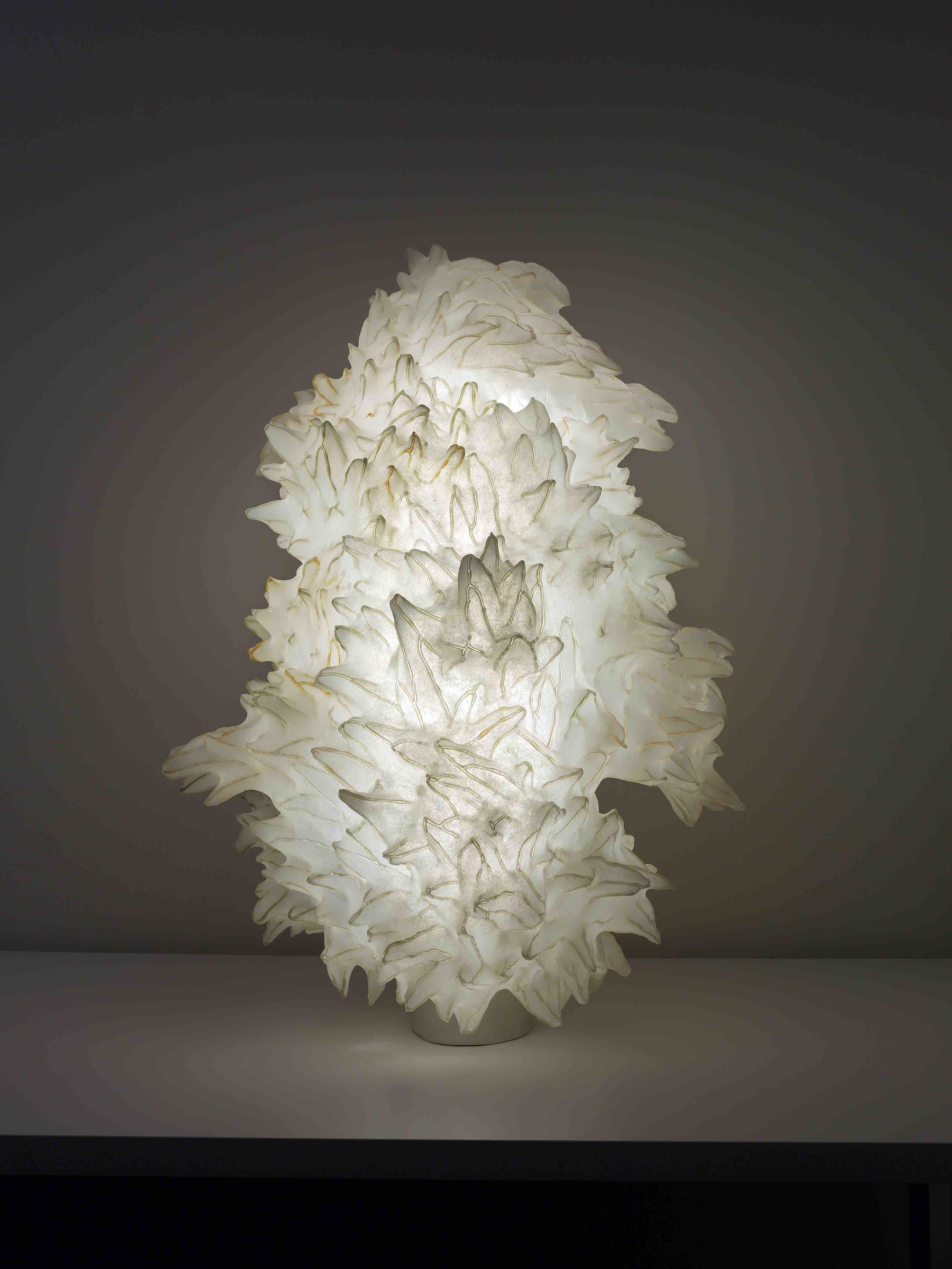
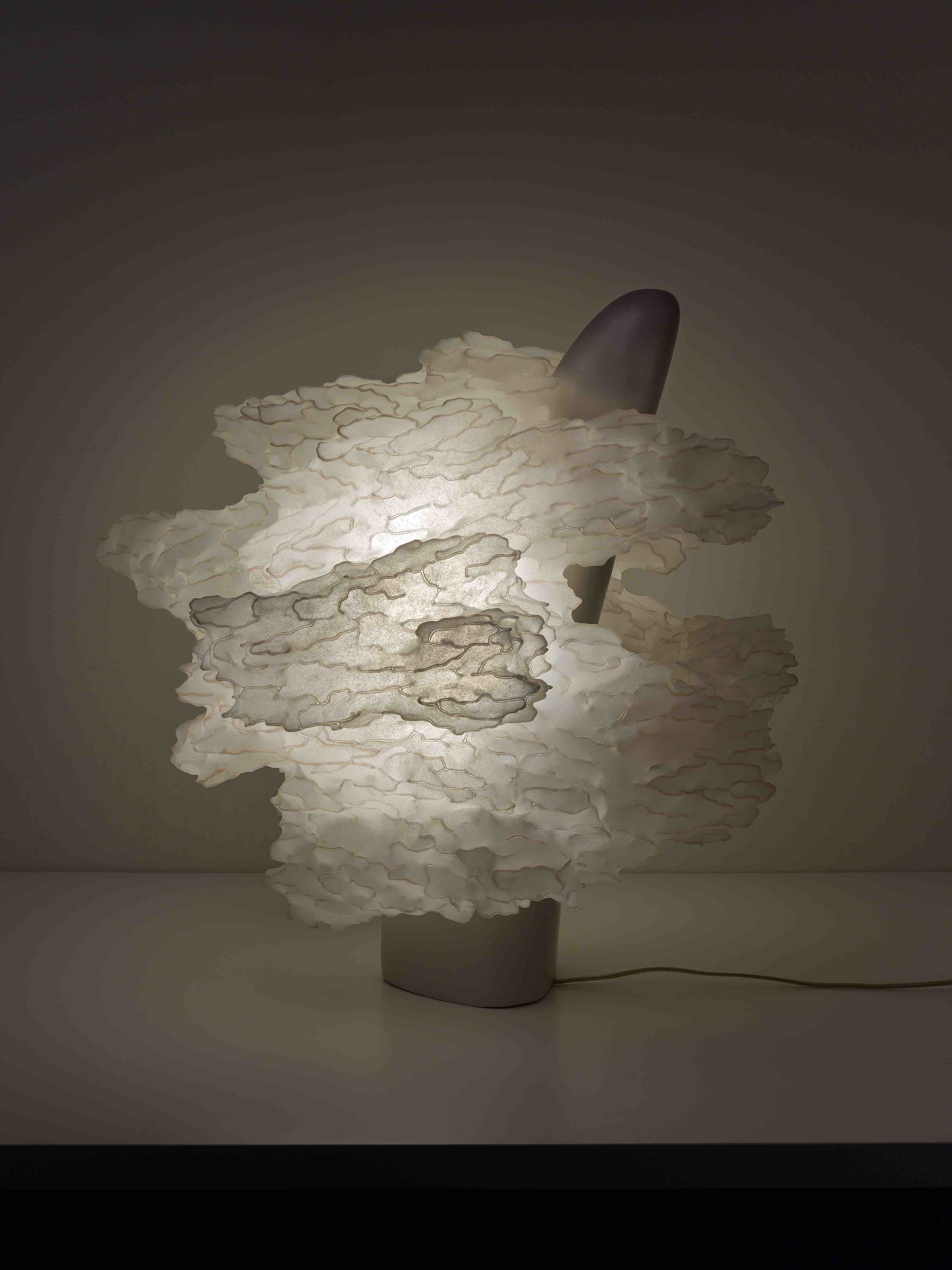
Photo courtesy of Maison Gerard, Robert Levin.

